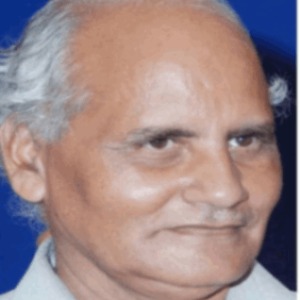Title : Rhodium-hexagonal mesoporous silica based effective heterogeneous catalyst for hydroformylation of vinyl esters
Abstract:
Hydroformylation, a catalytic reaction between double bond of an alkene with a mixture of carbon monoxide and hydrogen gases, syn gas (CO+H2, in 1:1 p/p ratio ), to add hydrogen and a formyl group across the double bond, is the most practiced reaction for the production of, industrially demanded aldehydes at commercial scale. Vinyl esters are the functionalized alkenes and their hydroformylation products,find a wide industrial applications. However vinyl ester hydroformylation are generally done in homogenous conditions, which have limitations of the separation of the cost effective metal based catalysts and products. Heterogeneous catalysis provides the potential advantage of easy separation and recycling of the catalyst and easy purification of the products.Heterogeneous catalysis studies on vinyl ester hydroformylation are very scanty.We have developed a heterogeneous catalyst, RhCl(TPPTS)3 (TPPTS= triphenylphosphene-trisulfonic acid tri sodium salt) encapsulated HMS (hexagonal mesoporous silica) and investigated at laboratory scale, for the hydroformylation of four vinyl esters: vinyl acetate, vinyl propionate, vinyl butyrate and vinyl benzoate, using syn gas in a high pressure reactor. This heterogeneous catalyst is elegantly synthesized and thoroughly characterised. The catalyst is found to be effective enough to catalyze the hydroformylation of these studied esters, in which the best catalytic performance was observed with the smallest ester, vinyl acetate.Vinyl acetate, is used for the synthesis of propane diols, finding major applications as heat transfer fluid, anti-freezing agent and resins. Thus the detailed investigations performed with vinyl acetate by varying the catalyst amount, partial pressure of CO, partial pressure of H2 , temperature and agitation speed using toluene as solvent are accounted here.All these parameters were found to be effective to influence the hydroformylation rates. First order kinetics was observed with respect to the catalyst amount and vinyl acetate concentration. The partial pressure dependence of CO and H2 also showed first order kinetics in each. Partial pressure of CO had shown an initial increase and then substrate inhibition kinetics. Oxidative addition of H2 was found to be the rate determining step. Recycling aspects of the catalyst is studied. A suitable kinetic model was derived based on plausible reaction steps and compared with the experimental rates.In the line of above the talk will be presented and discussed.
Audience Take Away
- The present work shows the efficiency of a heterogeneous catalyst, RhCl(TPPTS)3 (TPPTS= triphenylphosphene-trisulfonic acid tri sodium salt) encapsulated HMS (hexagonal mesoporous silica), for hydroformylation of vinyl ester with the recyclability and reusability of the catalyst. The mesopores of the heterogeneous catalyst afforded to act as nanophase reactors. The effective parameters for hydroformylation of vinyl acetate are kinetically optimized at laboratory scale, to address the concern of the improvement of the catalyst system for offering the required basic information to design and use high volume appropriate reactors to further scale up the hydroformylation reaction.



